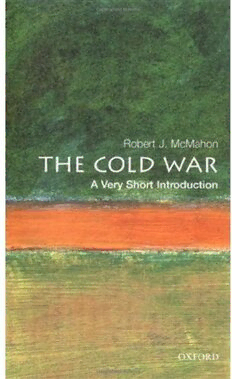
The Cold War: A Very Short Introduction (Very Short Introductions) PDF
201 Pages·2003·3.212 MB·English
Most books are stored in the elastic cloud where traffic is expensive. For this reason, we have a limit on daily download.
Preview The Cold War: A Very Short Introduction (Very Short Introductions)
Description:
After searching some time for a short history of the Cold War, this little gem virtually fell into my lap. Though it's very, very brief, I cannot mark it down for excluding material because it is simply meant as an introduction. Because my previous experiences of this genre have been mixed: The Wall: The People's Story, The Berlin Wall: 13 August 1961 - 9 November 1989 and The Cold War by John Lewis Gaddis, I actually approached it with some trepidation. This was particularly the case because it was written by an American.
What I got was very different from what I expected. While Gaddis approaches the subject with heavy handed jingoism, relating standard conventional wisdom, Robert McMahon delivers a very reflective style of analysis which promotes a real understanding of what was going on. I have never believed in a partisan approach to history because it only ever gives one side of the story while making the other side look ridiculous or untenable. Rather than simply saying that the Soviets did something evil and getting bogged down in a moral argument, McMahon actually explains why it happened the way it did and leaves it for the reader to judge for themselves. Without this approach it would be just another book.
He goes into some detail about the levels of political aggression on both sides but with particular reference to the rhetoric delivered by a conga line of US presidents starting with Truman and ending with Reagan. This is what makes the book unique and it is this question of American sense of proportion which takes it to another level. How bad was the threat from the USSR and how much did a level of US paranoia contribute to upping the ante? Gaddis, in contrast, is simply incapable of doing that.
In the end we learn that it was Gorbachev who was making all the concessions, usually against the will of some extremist apparatchiks and not without significant personal risk. It happened so quickly, in fact that the changes even pre-empted US pressure. The subtext of McMahon's thesis is that the traditional view that the US won the Cold War by superiority in technology and philosophy was not actually what happened. It was not the US who won but the entire world and from the point of view someone who lived through it, is a far more accurate and sympathetic analysis of what happened.
This is a great little book, as is the case with so many in this series and I wholeheartedly recommend it. It's not for everyone and if your political persuasions don't run in this direction, you probably won't like it. If you are reasonably open minded, you will end up with a far better understanding than you might from a traditional view many times the length. McMahon has enough material to easily write a book 4 times the size which would be a great source on the period and would probably be a best seller. The sooner he does it, the better because I'll be first in the queue to buy it!
See more
The list of books you might like
Most books are stored in the elastic cloud where traffic is expensive. For this reason, we have a limit on daily download.
